Violinist Hector Scott shares his insights into how to make practice engaging and help a pupil become a better version of themselves. In part one of three, he tackles the matter of redefining progress and the problem of procrastination
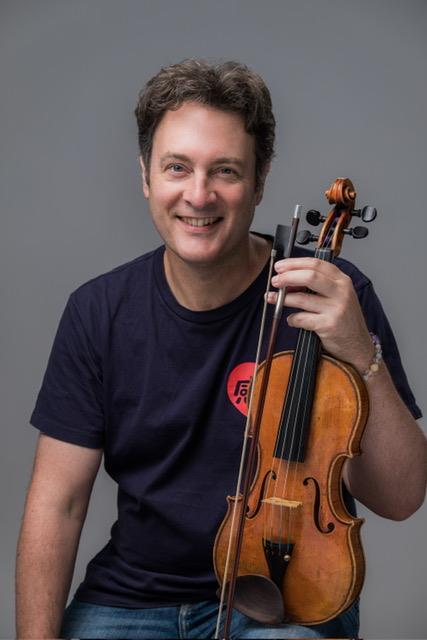
Discover more Featured Stories like this in The Strad Playing Hub
As teachers, in supporting our pupils to explore how they might unlock their hidden potential, we are essentially sharing knowledge to help them make choices that will build happiness, meaning, motivation, and success. How do we find meaning and motivation? How can we lead more generous, creative and curious lives?
’Music lives and breathes to tell us who we are and what we face. It is a path between ourselves and the infinite’ – Yehudi Menuhin
Rather than seeing development as a game that needs to be beaten, we should perhaps redefine and change the way we understand progress. It is important to realise that teachers and pupils often look at the same lesson through completely different lenses. As teachers, we often focus on developmental progress through pedagogical breakthroughs, which can be so subtle that they generate minimal awareness in our pupils. The invisibility of progress to a pupil, however, can create a negative cycle of demotivation, frustration, and disengagement which hinders a pupil’s learning growth and overall well-being. The perceived futility of their efforts is demoralising, and doubting their abilities leads to feelings of inadequacy. Frustration and anxiety are common responses to stress and overwhelm, owing to the pupil being unsure whether they are making any headway in, for example, a technical area identified by the teacher, or in their perception of progress towards a self-identified goal such as intonation or shifting.
What follows is often a path of poor goal setting, a reduced sense of achievement owing to reduced recognition of accomplishment, and a drop in engagement as pupils feel the learning process is stagnant and unfulfilling. Sometimes misidentified as an absence of commitment, interest or potential, the procrastination that occurs is arguably a consequence of a felt disconnect between a pupil’s perception of how they are progressing through practice, and the development that is occurring. When faced with these pedagogical challenges, as teachers our primary question should be, ’How can our pupils tell they are progressing?’ Reorienting the discussion of progress away from the common focal points for pupils and parents of younger pupils, such as practice hours clocked; achievement in exams; progression through standard repertoire; competition success; or comparison with prodigies, requires not just questioning the way we have always understood progress, but in taking the initiative to develop a different kind of practice.
’When you don’t want to practise, the critical thing to change is not whether or not you practise (the “just get on with it” approach). The thing to change is the fact you didn’t want to in the first place – which means understanding why you don’t want to. Otherwise, you’re treating the symptoms, but not the disease. It’s not all of practising you don’t feel like. It’s bits. Transform those bits – or dodge them entirely – and practising is a brand new game’ – Philip Johnston from Practiceopedia
Practice can be envisioned as a strategic game in which the pupil develops an understanding of the rules of the game and learns the levers required to progress through increasingly complex levels. However, there is an added dimension of interest and creativity in practice that is often overlooked. Consider, for example, a different approach to an etude. The process might begin by looking at what an etude explores, selecting the practice techniques that might be most effective in achieving success, and extending the pupil’s practice to writing an etude based on similar challenges. It is not simply the execution of an etude but rather integrating a connected, creative dimension that makes visible the progress and reveals abilities. In short, ideation with execution. When pupils accurately perceive the results of their efforts in the practice room, they are more likely to stay engaged and committed to their studies. Pupils that better understand their capabilities will feel more motivated and organised, which can help them reach their full potential and minimise procrastination.
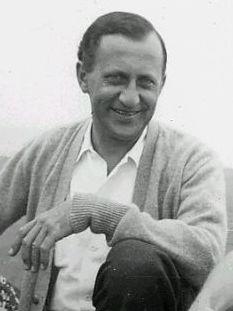
It is important to note, however, that procrastination is not always a hindrance to learning. Interestingly, the data suggests that procrastination and creativity are linked. Moderate procrastination can lead us to incubate ideas in the back of our mind and is a natural part of the creative process. While counterproductive in the extremes, in certain circumstances it may lead one to better ideas. This was a concept that Eugene Lehner of the Kolisch String Quartet used to encourage us to explore. I well remember him asking me to play the recitativo section from the last movement of Mendelssohn’s string quartet op.13 in a variety of ways. When I struggled to play three different versions, he took my violin and played it differently twelve times and asked whether I wanted him to continue? He put his message across in such a delicate, caring way that the learning has always stuck vividly with me. Committing to making our vision a reality does not always occur simply through relentless practice of what is; it comes from a relentless curiosity and a willingness to challenge and explore beyond the status quo.
Distancing ourselves from a problem allows for a reframing and the possibility of a new perspective. It gives us time to connect the dots, to see patterns that had previously evaded our attention. With curiosity and intrinsic motivation, our creativity may be applied to the question of interpretation or a technical challenge.
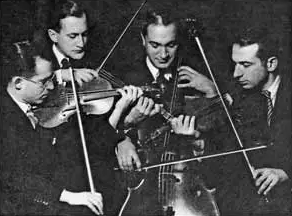
To a pupil maturing in awareness, the varying internal orientations that result in procrastination may look and feel markedly similar. However, the outcome will be distinctly different. When we put off tackling an issue through, for example, a lack of care or avoidance, it does not stay active in the back of our mind. However, putting off a task because we have reached a learning impasse, because we wish to develop many alternatives before selecting one to pursue, may inspire a creative boost.
’If I wanted to play the violin, I had to work. Because anything that one wants to do really, and one loves doing, one must do every day. It should be as easy to the artist and as natural as flying is to a bird. And you can’t imagine a bird saying well, I’m tired today, I’m not going to fly!’ – Yehudi Menuhin
To release students’ full potential, it is important to understand that we often do not procrastinate for the reasons we think we do. It is not about being lazy or avoiding effort but rather the avoidance of the negative emotions and unpleasant feelings created when a set of tasks make us feel frustrated, confused, bored, or anxious. Much of procrastination is driven by fear, the not knowing insecurity of wondering if we are up to the presented challenge. One of the best ways to manage consistent procrastination is to ask ourselves and our pupils which particular tasks cause the procrastination. What negative emotions are they stirring up and how might we change these emotions? As a violinist, we might love learning the notes of a Bach partita, but the process of bringing meaning to these melodic notes through understanding the harmonic journey might be less appealing. However, improvising around the harmonic journey and creating one’s own version of the partita might be an interesting path to follow. Could creating an interesting bassline while a colleague plays the partita be another exercise to explore? The key is in making the learning task a creative task again.
Read: Challenge your curiosity and your preconceptions: violinist Hector Scott
Read: Preventing procrastination: how to never put off until tomorrow the music you can explore today
Discover more Featured Stories like this in The Strad Playing Hub
The number one source for playing and teaching books, guides, CDs, calendars and back issues of the magazine.
In The Best of Technique you’ll discover the top playing tips of the world’s leading string players and teachers. It’s packed full of exercises for students, plus examples from the standard repertoire to show you how to integrate the technique into your playing.
The Strad’s Masterclass series brings together the finest string players with some of the greatest string works ever written. Always one of our most popular sections, Masterclass has been an invaluable aid to aspiring soloists, chamber musicians and string teachers since the 1990s.
American collector David L. Fulton amassed one of the 20th century’s finest collections of stringed instruments. This year’s calendar pays tribute to some of these priceless treasures, including Yehudi Menuhin’s celebrated ‘Lord Wilton’ Guarneri, the Carlo Bergonzi once played by Fritz Kreisler, and four instruments by Antonio Stradivari.

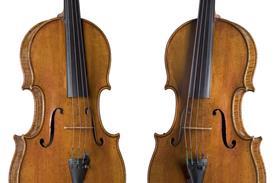


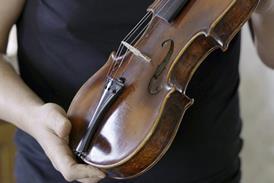




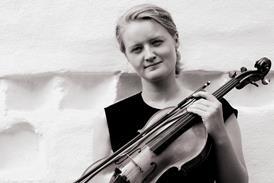



























No comments yet